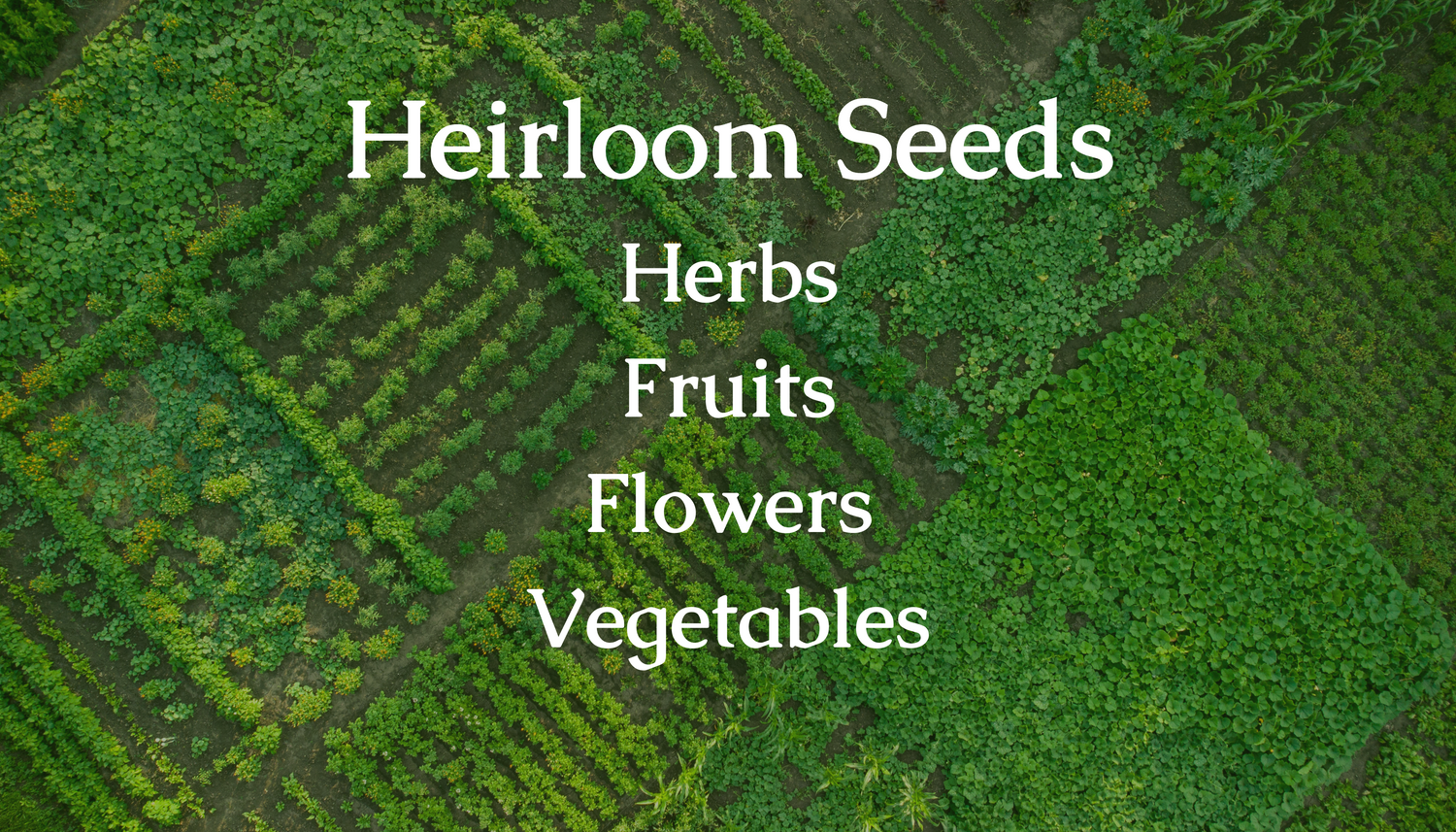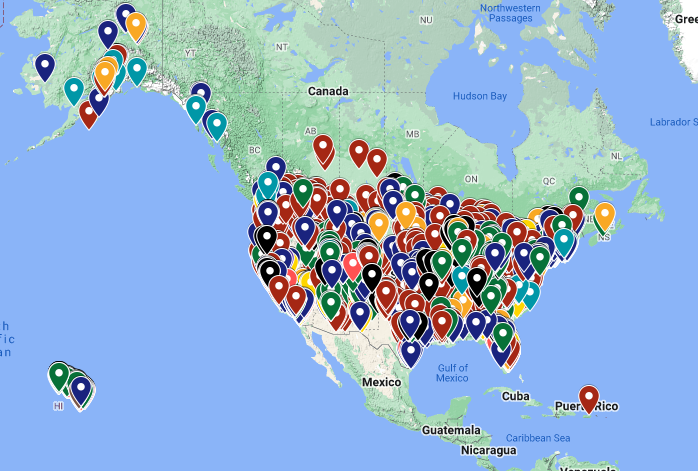How to Properly Store Herbs, Fruits, and Vegetables at Home.
Subscribe to My Health Forward
Tired of buying fresh produce and having it mold, wilt, or go bad in a few days? You can easily stop this from happening by learning how to store it. Proper storage helps maintain the freshness of produce and prevents premature spoilage. Here's a detailed guide on how to store various types of fruits, herbs, and vegetables. This will help you save money, reduce food waste, and preserve fresh food longer. Scroll to the bottom to see the full list of ethylene sensitive and producing fruits and vegetables to better understand what not to store together.
Herbs.
Drying: You can air dry herbs to extend their shelf life by months to years and retain their flavor and nutrients. Pat the herbs dry, tie them together with string, and hang them upside down somewhere that is moderate temperature with air circulation and doesn’t receive direct sunlight. Many people hang them from the shelves in their pantry. Once the herbs are dry after hanging for 5-10 days, chop and store them in an airtight container out of direct sunlight.
Freezing Herbs: Many herbs can be frozen for use throughout the year. Chop the herbs and place them in an ice cube tray. Fill the tray with water or melted butter. Then use the herb water/butter cubes for cooking as needed.
Salt: An easy and inexpensive way to make fresh herbs last longer is with salt. You can chop herbs and mix them with liberal amounts of salt in the blender. You can refrigerate this for up to a year in a closed glass jar. You could also put the salted herb mixture in the oven for 30-45 minutes above 200 degrees fahrenheit to dry them out. This will make you a shelf stable herb salt that does not need to be refrigerated.
Basil: Wrap the basil leaves in a damp cotton/hemp towel or paper towel in a loose produce bag on the counter at room temperature. If the basil leaves are still on the stems, place it in a glass jar with water on the counter at room temperature.
Dill and Fennel: Trim the ends of the stems. Place in a jar or glass with water. Cover loosely with a produce bag. Store in the refrigerator and change the water every few days.
Chives: Wrap the chives in a damp cotton/hemp towel or paper towel. Place in a bag or container and store in the refrigerator. Change the towel if it becomes too damp.
Mint: Wrap the mint in a moistened (not wet or damp) cotton/hemp towel or paper towels. Place in an airtight container or produce bag and store in the fridge. Change the towel if it becomes too damp.
Parsley & Cilantro: Trim the ends of the stems. Place in a jar or glass with water. Cover loosely with a produce bag. Store in the refrigerator and change the water every few days.
Sage: Wrap the sage in a damp cotton/hemp towel or paper towel. Place in a produce bag or container. Store in the refrigerator and change the paper towel if it becomes too damp.
Rosemary and Thyme: Wrap the herbs in a damp cotton/hemp towel or paper towel. Place in a produce bag or container. Store in the refrigerator. Change the towel if it becomes too damp
-

Heirloom Seed Varieties
Open-pollinated, non-gmo, and pesticide free heirloom, wildflower, and native grass seeds.
Fruit.
Ethylene: To prevent premature ripening, keep ethylene-producing fruits (apples, bananas, tomatoes, avocadoes, peaches, plums, pears, mangoes, cantaloupe, and honeydew melon) away from ethylene-sensitive ones (berries, grapes, apples, kiwis, peaches, plums, avocados, watermelons, cantaloupes, and bananas). Don’t wash fruit until you are ready to eat it.
Berries (Strawberries, Blueberries, Raspberries): Store berries in the refrigerator. Keep them dry; wash just before consumption. Place them in a single layer, if possible. Line the container with a cotton/hemp towel or paper towel to absorb excess moisture.
Citrus Fruits (Oranges, Lemons, Limes): Store at room temperature for up to a week. Refrigerate for longer shelf life in a produce drawer.
Apples and Pears: Store in the refrigerator crisper drawer. Keep them away from other fruits, as they release ethylene gas.
Bananas: Store at room temperature. Keep them separate from other fruits. If bananas are too ripe, separate them to prevent faster ripening.
Grapes: Remove any overly ripe grapes, and then store the grapes in the refrigerator. Place them in a perforated bag or container with holes in it. Wash grapes just before eating to prevent moisture.
Melons (Watermelon, Cantaloupe): Store uncut melons at room temperature. Refrigerate cut melons in an airtight container.
Pineapple: Store a whole pineapple at room temperature. Refrigerate cut pineapple in an airtight container.
Mango: Ripen at room temperature. Once ripe, store in the refrigerator.
Avocado: Ripen at room temperature. Refrigerate once ripe.
Peaches, Plums, Nectarines: Ripen at room temperature. Refrigerate once ripe.
Tomatoes: Store at room temperature until ripe. Keep away from direct sunlight.
Cherries: Remove any overly ripe cherries, and then store the cherries in the refrigerator. Place them in a perforated bag or container with holes in it. Wash cherries just before eating to prevent moisture.
Kiwi: Ripen at room temperature. Refrigerate once ripe.
Papaya: Ripen at room temperature. Refrigerate once ripe.

Browse My Heirloom Seeds
I offer over 180 varieties of heirloom seed packets that are open-pollinated, non-gmo, and pesticide-free. Growing your own produce provides you with continual access to healthy and nutritious food.
Vegetables
Ethylene: To prevent premature ripening, keep ethylene-producing vegetables (tomatoes, avocadoes, peppers, onions, garlic) away from ethylene-sensitive vegetables (leafy greens, broccoli, cauliflower, cabbage, carrots, cucumbers, zucchini, squash, peppers, and asparagus). Don’t wash vegetables until you are ready to eat them.
Leafy Greens (Lettuce, Spinach, Kale): Store in a produce bag or wrap in cotton/hemp/paper towels. Remove any damaged leaves before storage. Store in the refrigerator crisper drawer.
Potatoes: Store in a cool, dark place in a breathable bag. Keep them away from onions and garlic to prevent sprouting. Ideal storage locations include root cellar, pantry, or a cool basement. Keep them dry to prevent mold.
Beets: Refrigerate in the crisper drawer on top of a dry towel.
Cruciferous Vegetables (Broccoli, Cauliflower, Cabbage): Refrigerate in a bag or container. Refrigerator crisper drawer. Use within a week for optimal freshness.
Peppers: Refrigerate in a bag or container. Use a refrigerator crisper drawer. Use within a week for crispness.
Onions: Store in a cool, dark place. Keep them dry. Pantry or a well-ventilated area. Keep them away from ethylene sensitive vegetables.
Garlic: Store in a cool, dark place. Keep them dry. Pantry or a well-ventilated area. Recommend to have a garlic specific bowl.
Mushrooms: Store in a paper bag or a produce container with a towel over it in the refrigerator. Avoid moisture.
Cucumbers: Refrigerate in the crisper drawer on top of a dry towel.
Zucchini and Squash: Refrigerate in the crisper drawer on top of a dry towel. Use within a week for optimal freshness.
Carrots: Refrigerate in the crisper drawer on top of a dry towel.
Asparagus: Trim ends and place in a jar with water in the refrigerator. Cover with a produce bag.

Find Local Farms
Find farms near you using my map with over 6,800 local farms, ranches, markets, and stands across the country.
Ethylene
Ethylene is a natural plant hormone that influences the ripening and aging of fruits and vegetables. Some fruits and vegetables are ethylene producers, while others are ethylene-sensitive. You should not store ethylene producing fruits and vegetables with other ethylene sensitive fruits and vegetables. Here's a list of ethylene-sensitive fruits and vegetables:
Ethylene-Sensitive Fruits:
- Berries (Strawberries, Blueberries, Raspberries)
- Grapes
- Apples
- Kiwi
- Peaches
- Plums
- Avocado
- Watermelon
- Cantaloupe
- Bananas (ethylene sensitive when unripe)
Ethylene-Sensitive Vegetables:
- Leafy Greens (Lettuce, Spinach, Kale)
- Broccoli
- Cauliflower
- Cabbage
- Carrots
- Cucumbers
- Zucchini
- Squash
- Peppers
- Asparagus
- Tomatoes: While tomatoes produce ethylene, they are often sensitive to it as well, especially when they are green. However, as they ripen, they become less ethylene-sensitive.
Ethylene-Producing Fruits:
- Apples
- Bananas
- Tomatoes
- Avocadoes
- Peaches
- Plums
- Pears
- Mangoes
- Cantaloupe
- Honeydew Melon
Ethylene-Producing Vegetables:
- Tomatoes
- Avocado
- Bananas
- Peppers
- Potatoes
- Sweet Potatoes
- Onions
- Garlic




